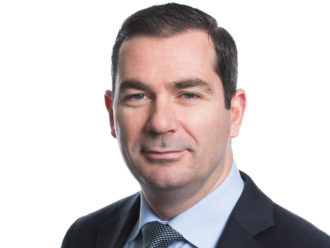What is your response to the Work and Pensions Select Committee’s report into DB and whether TPR needs more power? Does it? What powers would you want in an ideal world?
We think that overall the legislative and the regulatory framework is working exactly as parliament intended it to do. We do not think that the legislative or regulatory framework is broken and do not think there is a mass issue of affordability in relation to DB schemes.
Nevertheless, some tweaks to the framework might be deemed to be desirable, in which case, it would be up to parliament to implement those changes.
We suggested, in our letter of June to the Work and Pensions Select Committee when they were investigating the BHS collapse, some possible areas for improvement in our powers. But also some changes to the legislative framework, for example, that might make the consolidation of pension schemes easier than it is now.
What do you mean by ‘consolidation of schemes’?
We think that there are far too many DC schemes, many of which are sub-scale. We expect to see consolidation of those, probably driven in part by the growth in master trusts, several of which have been set-up with business strategies to acquire smaller pension schemes that employers would rather not run themselves anymore. So I would expect that as we see master trusts develop over the next few years, they themselves will drive some consolidation, not only within the master trust market itself, but also in relation to sweeping up some of the smaller, sub-standard employer- sponsored DC schemes.
Do you believe there are too many master trusts at present?
Yes. We have made it clear that we have been concerned for many years of the growth of master trusts, particularly in the automatic enrolment market where we think it is unlikely that they will all be able to reach a sustainable scale.
There are now proposals, which will be put before parliament shortly in a new pension schemes bill, setting out some new requirements for master trusts. It is not possible at the moment to comment on that in detail, because the bill has not been laid before parliament. But Baroness Altmann, who was pensions minister when the bill commenced, made very clear that she wanted the regulator to have greater control over the master trust market.
What about consolidation in the private sector DB market?
Our submission to the Work and Pensions Select Committee suggested that consolidation of DB schemes might also have advantages in terms of reducing the administrative burden and gaining economies of scale through the effective pooling of assets and administration. It would also potentially have some benefits for us as a regulator if we were required to supervise a smaller number of schemes.
So consolidation could make your job easier?
We are a small regulator with limited resources and we target those resources at the areas of highest risk. So if there are fewer schemes in the market, particularly subscale schemes that are in difficulty, it would certainly make it easier for the regulator.
But I think more importantly than that, it would also potentially make those schemes that are consolidated in some way more sustainable, more affordable and better able to provide good member outcomes. I think it’s certainly something that bears further consideration.
What’s TPR’s approach to the current drive for transparency and value for money in the industry? Do you think there is an issue with asset managers that needs to be addressed?
Well, we’ve given very clear guidance as part of our DC code to trustees about value for money and how they should go about assessing it. So we are watching with interest what steps the FCA takes to require asset managers to be more open with trustees about costs and charges and indeed transaction costs within funds. We want to make sure that trustees are able to fulfil their legal requirements, to assure members in their schemes that they are getting value for money.
I know anecdotally from speaking to trustees that some of them have had a great deal of difficulty in getting the kind of management information they would like in the format that they would like to have it from some investment managers.
Clearly we are sharing that information with our colleagues in the FCA and it remains to be seen what steps are taken. But I know that the FCA themselves are taking that very seriously. Not just in relation to pension scheme investments, but in relation to all retail investments too.
At a recent PI conference, it was suggested the regulator needed to do more to support schemes when it comes to integrating ESG into portfolios. Could you do more?
We consulted very widely about that when we produced our investment guides to support the new DC code. We engaged very closely with various groups interested in environmental, social and governance issues, including ShareAction and the UK Sustainable Investments and Finance Association.
I have said publically that both trustees and asset managers need to take ESG seriously and also bear in mind it could become a legal requirement if the UK adopts IORP II into UK pensions law.
If that becomes a legal requirement, presumably TPR would have a role in policing that?
We would certainly need to understand what pension schemes say in their statement of investment principles (SIPs) about it. But who knows how that would be incarnated into UK law? It might even be a requirement that trustees must include within their SIPs a statement of how they will deal with ESG.




